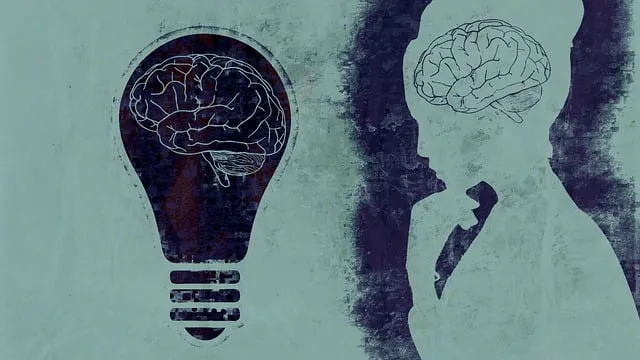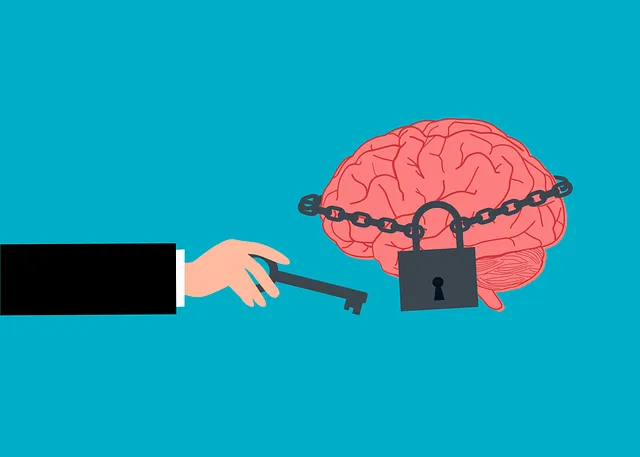Community outreach programs by Littleton Kaiser Permanente play a pivotal role in enhancing mental health accessibility and reducing stigma in underserved areas. Through workshops, support groups, and inclusive strategies, these initiatives bridge the gap between healthcare facilities and communities. By promoting open dialogue, positive thinking, and self-care practices, they foster healthier environments and encourage residents to actively engage with their mental wellness needs. The success of Littleton Kaiser Permanente's programs, measured through participation rates, satisfaction levels, and behavioral changes, inspires other healthcare organizations to prioritize similar community-focused strategies for improved public health and well-being.
Community outreach programs play a pivotal role in enhancing mental health services, bridging gaps between healthcare providers and underserved populations. This article delves into the significance of such initiatives, highlighting successful models like Littleton Kaiser Permanente’s approach to community engagement. We explore strategies for effective implementation, address common challenges, and emphasize the importance of measuring impact, using metrics such as the number of individuals reached by these programs. By examining these aspects, we aim to illuminate best practices for improving mental health care accessibility.
- Understanding Community Outreach Programs: Their Role in Mental Health Services
- Littleton Kaiser Permanente: A Model for Effective Community Engagement
- Strategies for Implementing Successful Outreach Initiatives
- Overcoming Challenges: Addressing Barriers to Accessing Mental Health Care
- Measuring Impact: Evaluating the Success of Community Outreach Programs
Understanding Community Outreach Programs: Their Role in Mental Health Services

Community outreach programs play a pivotal role in enhancing mental health services, especially in areas like Littleton where access to specialized care can be limited. These initiatives aim to bridge the gap between healthcare facilities and communities, ensuring that mental well-being support reaches those who might not otherwise seek it. By implementing community outreach, organizations like Kaiser Permanente in Littleton can improve awareness about mental health issues and reduce the stigma associated with seeking treatment.
This strategy involves various activities, from hosting educational workshops to providing direct trauma support services. Burnout prevention strategies for healthcare providers are also integrated into these programs, ensuring that those offering assistance remain resilient and effective over time. Such initiatives contribute to a holistic approach to mental health care, focusing not only on mood management but also on addressing the unique needs of diverse communities, ultimately fostering healthier and more connected environments.
Littleton Kaiser Permanente: A Model for Effective Community Engagement

Littleton Kaiser Permanente stands as a beacon of effective community outreach and engagement, showcasing how healthcare organizations can significantly impact their surrounding areas. This model emphasizes the importance of accessibility and integration within the community, particularly in mental health services. By offering a range of programs, including resilience-building workshops and mindfulness meditation sessions, they’ve successfully reached individuals across all demographics.
Their approach not only addresses the physical aspects of healthcare but also prioritizes mental wellness, thereby reducing the stigma surrounding mental illness. Through these initiatives, Littleton Kaiser Permanente has fostered a supportive environment where residents can openly discuss their challenges and seek help without hesitation. The success of their program highlights the potential for similar community-focused strategies to improve overall public health and well-being.
Strategies for Implementing Successful Outreach Initiatives

Implementing successful outreach initiatives requires a multifaceted approach. Firstly, Littleton Kaiser Permanente mental health services number should be easily accessible and promoted through various channels like local newspapers, community bulletin boards, and social media platforms. Building trust within the community is paramount; this involves demonstrating Empathy Building Strategies that resonate with diverse populations. Engaging with community leaders, organizing informational sessions, and participating in local events can foster understanding and acceptance of mental health services.
Effective Communication Strategies are crucial for reaching a wider audience. Using clear, non-technical language and employing multiple communication methods—such as workshops, webinars, and peer support groups—ensures that information is accessible to everyone. Encouraging open dialogue and promoting Positive Thinking through initiatives like mindfulness sessions or stress management workshops can help destigmatize mental health issues. Regularly evaluating the impact of these strategies and making data-driven adjustments ensures ongoing relevance and effectiveness in serving the community’s evolving needs.
Overcoming Challenges: Addressing Barriers to Accessing Mental Health Care

Accessing mental health care can be a significant barrier for many individuals and communities, especially those facing socio-economic challenges or living in underserved areas. In places like Littleton, where Kaiser Permanente offers mental health services, one of the primary obstacles is the lack of awareness and understanding surrounding these resources. Many people may not know about the available support or feel reluctant to reach out due to stigma or fear of judgment.
Community outreach programs play a crucial role in overcoming these challenges. By utilizing self-care practices, compassion cultivation techniques, and emotional well-being promotion strategies, these initiatives can help bridge the gap between individuals and essential mental health services. Educational workshops, peer support groups, and community partnerships can foster an environment where mental health is prioritized and normalized, ultimately encouraging more people to take advantage of resources like the Littleton Kaiser Permanente mental health services number.
Measuring Impact: Evaluating the Success of Community Outreach Programs

Evaluating the success of community outreach programs is a vital step in understanding their impact and identifying areas for improvement. This process involves measuring various outcomes to ensure the program aligns with its goals and benefits the targeted community, especially when focusing on mental health services, like those offered by Littleton Kaiser Permanente. By assessing participation rates, satisfaction levels, and changes in behavior or knowledge, organizations can gauge the effectiveness of their initiatives. For instance, tracking the number of individuals who engage with the program and seek subsequent support from mental health professionals (such as those provided by Littleton Kaiser Permanente) is an indicator of its reach and potential long-term success.
Furthermore, measuring emotional healing processes and mood management improvements through surveys or qualitative feedback can offer insights into the program’s contribution to public awareness campaigns development. These evaluations allow for a comprehensive understanding of how outreach programs influence community perceptions, behaviors, and overall well-being. Such data is invaluable for refining strategies, ensuring resources are allocated effectively, and fostering continuous improvement in providing essential mental health services within the community.
Community outreach programs, as exemplified by Littleton Kaiser Permanente’s successful engagement strategies, play a pivotal role in expanding access to mental health services. By adopting targeted initiatives and overcoming barriers, these programs can significantly impact communities, ensuring that those in need receive the support they require. The number of individuals reached through such efforts is substantial, leading to improved mental well-being and fostering more inclusive healthcare environments. This article has outlined key strategies and highlighted the importance of continuous evaluation to enhance community outreach’s reach and effectiveness.






